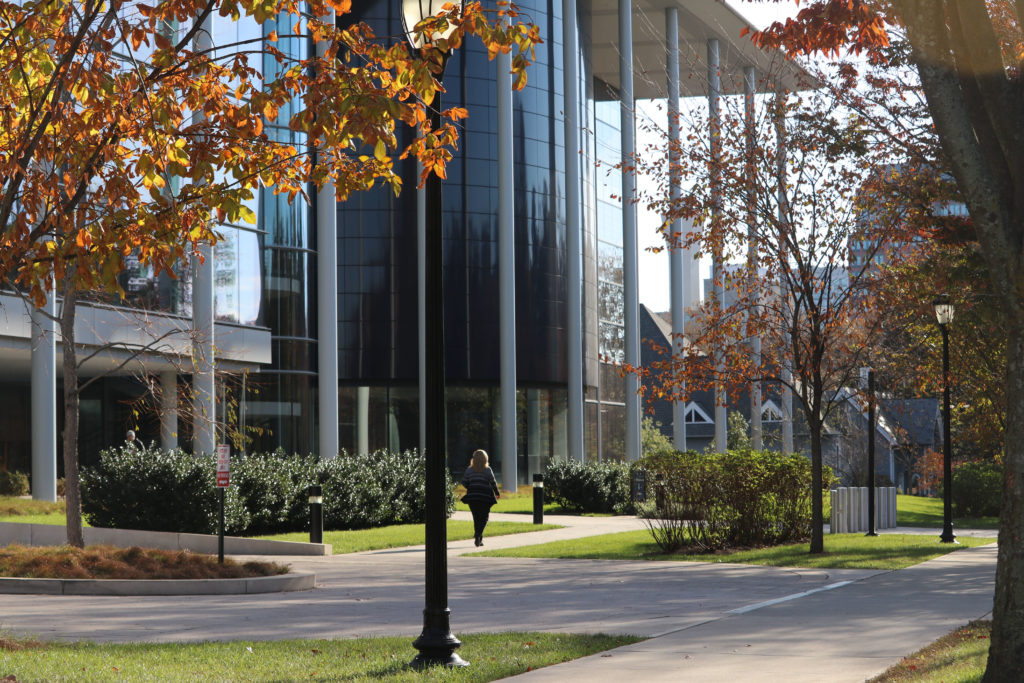
SOM denial of tenure sparks debate over diversity in academia
Yale Daily News
On February 15, Yale School of Management associate professor Michael Kraus announced on Twitter that he had been denied tenure. His academic colleagues were extremely surprised.
Tenure decisions are common occurrences on campus; the committees of each school often meet on a weekly basis. But Kraus, a social psychologist who studies inequality, received an unusually strong wave of support on Twitter. Her post garnered thousands of likes and hundreds of retweets; colleagues and scholars at Yale and elsewhere expressed shock at the decision, praising both Kraus’ body of research and his mentorship skills. Many wrote that the denial reflected broader issues in the tenure process — particularly that scholars of color, especially those who study racism and other forms of inequality, are systematically undervalued at top institutions. .
In contrast, the management of the School of Management asserted that few professors were tenured, but that the process provided a fair opportunity for all.
Kraus declined to comment for this article, but noted that he was pursuing an appeal of the decision, as stated in the School of Management faculty handbook.
A week later, researchers on Twitter are still discussing Kraus’ case and how it might reflect broader trends in academia. Kraus’s body of work has been cited more than 10,000 times, giving an H-index – a measure of the quantity and quality of a researcher’s research – of 39. An H-index of around 40 after less than 20 years of research characterizes “outstanding scholars.” Additionally, Kraus won Yale’s 2020 Academic Mentorship Award in the Social Sciences Division.
“It’s a painful reminder of how these elite, predominantly white universities operate,” wrote Neil Lewis, Jr., professor of communication and social behavior at Cornell University, of the tenure decision on Twitter. “They chain the color specialists and use us for the image work that builds the brand, but then kicks us out.”
In a follow-up email to The News, Lewis described Kraus as an “all-star academic MVP” whose case should have been a “slam dunk.”
SOM Director of Studies and Associate Dean Edieal J. Pinker explained that the tenure process has two stages: First, tenured SOM faculty members vote on the case after a review of documents is presented by the candidate. These documents generally include all of the researcher’s work as well as letters of recommendation written by colleagues in their field. If there is a majority vote in favor of the cause, the documents are sent to the provost’s office. It is only after this approval that the candidate is established.
Kraus’ tenure case failed at the first stage.
“Faculty diversification is a high priority for the Dean and we have briefed all search committees on best practices for diversifying the pool of candidates they consider,” Pinker wrote in an email to the News. “We are not satisfied with our progress to date, but remain committed to these efforts.”
SOM Dean Kerwin Charles, who created the Dean’s Advisory Council on Anti-Racism, Diversity and Climate, said he thought the tenure process was fair for everyone. He added that SOM’s commitment to diversity goes beyond this one case.
Pinker also said the tenure process at SOM is quite competitive — adding that most assistant professors ultimately don’t get tenure.
Discussions about diversity in academia are longstanding and ongoing. Universities across the country have created plans to address the lack of diversity among their students, faculty and administrators. After student protests over racial insensitivities in 2015, Yale created a new Dean of Diversity for the Faculty of Arts and Science and invested $50 million in a new Faculty Excellence and Diversity Initiative at the scale of the university, which was expanded in 2020.
Despite increased attention to diversity, faculties nationwide – especially those in tenured positions – have remained largely white and male, and any gains made in hiring diverse faculty are often undermined. through racialized retention struggles.
Black, Hispanic, Native American, and multiracial groups are particularly underrepresented among faculty members; In 2021, of the 683 tenured professors in Yale’s Faculty of Arts and Sciences, only 69 were underrepresented minority professors. At SOM, 52.4% of faculty are white, 5.9% are Asian, 3.7% are African American, 2.4% are Hispanic or Latino, and none are of Native American descent. The rest of the faculty is international or unidentified.
The nature of Kraus’ work on inequality could also have played a role in the decision to refuse Kraus’ tenure. Assistant Professor of Pediatrics at Northwestern University Nia Heard-Garris SOM ’23 suggested that for a predominantly white group of men in a very “conservative” field like business, inequality scholarship, like Kraus , are likely to be undervalued.
“Some of my classmates will say we don’t know how successful he is in his field, but his H-index is pretty high for his rank in his field,” Heard-Garris said.
Charles wrote in an email to The News that many SOM professors are currently conducting research on diversity, equity and inclusion, which is the focus of Kraus’ research.
Heard-Garris said Kraus was the only teacher she said even acknowledged race in her classes and held discussions where students could share their experiences.
Kraus has taught at Yale since 2015.

Comments are closed.